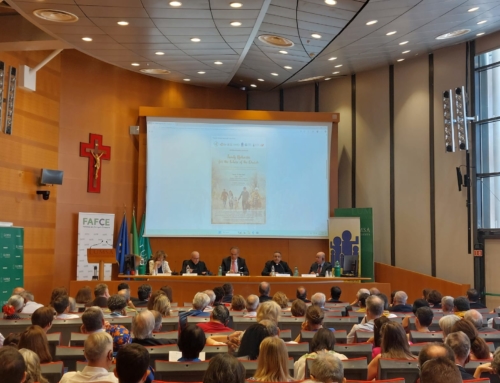FAFCE welcomes the recent answer to this question given by the European Committee of the Regions in an Opinion on “Demographic change: proposals on measuring and tackling its negative effects in the EU regions” adopted on October 14th, 2020. The context of the pandemic calls us to reflect on the intergenerational solidarity demonstrated by families, who were the first respondents to the crisis when combining their roles of parenting, assisting children in education, working and taking care for elderly relatives.
Some empirical elements are useful to illustrate the importance of sustainable demographic policy and its influence on public services:
- Old-age ratio of working age people and older people is projected to rise from 29.3% in 2016 to 52.3% by 2080 within the EU;
- Population growth in Europe has slowed down significantly, reaching in 2015 the first year of natural population decline in the EU-28, with more deaths than births;
- The dependency ratio steady increases: in 1960 there were on average three young people (aged 0-14) for every elderly person (aged 65 or over), while in 2060 there are projected to be two elderly for every young person;
In order to address and resolve this issue, The Committee of the Regions calls the European Union and Member-States to:
- Create a family-friendly environment where couples who wish to have children are able to fulfill their wish and not to delay it;
- Increase the attractiveness of the rural regions (in education and job opportunities) so that young people can stay and start their families there;
- Develop the concept of “economy of wellbeing” to improve persons and family wellbeing in terms of education, health, childcare, work-life balance, housing, connectivity and thus create a virtuous economic cycle;
- Prioritise measures to improve overall family income, including through the Youth Guarantee and the upcoming Child Guarantee, which aims to protect children from risks of poverty and social exclusion;
Demographic challenges directly threaten the viability of our economic and social systems. All the goals introduced in the European Commision Work program 2021, such as The Green Deal or Digital Europe, will not be possible without families, children and solidarity among them. It is urgent to re-establish the intergenerational balance in Europe. To do so, demographic and family policies must be put at the centre of the EU efforts. The demographic future of Europe lies in the creation of a family-friendly environment, which identifies all areas where families lack support. The Opinion of the European Committee of the Regions is a first step in this direction.
Learn more on FAFCE work on demography issues here:
- FAFCE webinar on Demographic Challenges and Sustainable Development
- Open letter of FAFCE President to Members of the European Council
- FAFCE welcomes the EESC Opinion on Demographic challenges
- Focus on demographic challenges: FAFCE’s interventions to the European Economic and Social Committee and the Committee of the Regions
- European Commission Report on the Impact of Demographic Change







